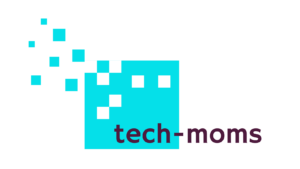In today’s ever-changing world, it has become increasingly important to provide students with educational experiences that are both relevant and engaging. Traditional models of education have often fallen short of equipping students with the skills they need to succeed in the contemporary workforce. Competency-based education (CBE), with its focus on skill acquisition and mastery, seeks to bridge this gap by emphasizing hands-on, real-world learning and adaptability. One particularly effective learning methodology that complements CBE is project-based learning (PBL).
Project-based learning is an instructional approach in which students engage in exploratory activities and in-depth projects, applying their learned knowledge to practical, real-world situations. By integrating PBL within a competency-based education framework, students are offered a unique opportunity to develop valuable skills such as creativity, collaboration, communication, and critical thinking – skills that are essential for success in today’s rapidly evolving workforce.
In contrast to traditional lecture-based instruction, project-based learning encourages student-driven, inquiry-based learning experiences. Fueled by their own curiosity, students work individually or in teams to explore issues, solve problems, and develop solutions to real-world challenges. This approach not only contributes to a deeper understanding of the subject matter but also promotes student confidence and a sense of ownership over their own learning journey.
Real-World Skill Development
One of the most significant advantages of incorporating project-based learning into a competency-based education framework is the acquisition of real-world skills. PBL experiences allow students to tackle complex problems, requiring them to think critically, analytically, and creatively. Through this process, students develop essential skills such as problem-solving, decision-making, and adaptability – skills that are highly valued in today’s dynamic workforce.
In addition, project-based learning fosters effective communication and collaboration. As students work together to accomplish shared goals in a project, they learn how to articulate their ideas, listen to diverse perspectives, and navigate team dynamics. These abilities are crucial for building successful relationships and thriving in team-based work environments in their professional lives.
Cultivating Lifelong Learners
Project-based learning encourages students to become lifelong learners by promoting curiosity and self-directed learning habits. PBL experiences ignite students’ intrinsic motivation to explore topics that are personally meaningful and relevant to their lives. This not only helps students better understand and retain the information they learn but also cultivates a passion for ongoing learning and personal growth.
By combining this intrinsic motivation with competency-based education’s emphasis on self-paced learning, students can take charge of their education path. They are empowered to seek out new perspectives and experiences, continuously refining their skills to adapt to the ever-changing demands of the modern world.
Enhancing Student Engagement
Traditional education models often struggle to maintain student engagement and interest, leading to disengaged learners who may not achieve their full potential. In contrast, with project-based learning, students are actively involved in their learning process. Working on projects that are relevant, meaningful, and interesting to them, students become more invested in their education.
When integrated with competency-based education, this engagement only strengthens. As students progress through their educational journey at their own pace, mastering each competency before moving to the next, they grow more confident and motivated in their learning. This motivation and engagement are crucial for supporting student success, both academically and professionally.
Assessing Student Progress Through Projects
Project-based learning offers unique assessment opportunities that complement the evaluation methods typically employed in competency-based education. The projects students complete throughout their PBL experiences may serve as valuable tools for assessing their understanding, skills, and competencies.
Projects facilitate a more comprehensive and holistic assessment of learning compared to traditional tests or exams. They provide students with an opportunity to demonstrate their mastery of multiple competencies in a single project, showcasing their ability to apply their knowledge and skills in diverse, real-world contexts. This approach not only aids educators in evaluating the effectiveness of their instruction but also helps to identify areas where a student may need additional support or resources.
Conclusion
The integration of project-based learning into competency-based education provides a powerful, multifaceted approach to teaching, learning, and skill development. PBL experiences offer students the opportunity to engage in meaningful, real-world tasks that challenge and inspire them to expand their knowledge, refine their skills, and become self-directed, lifelong learners. Furthermore, the combination of these pedagogies creates a more engaging, personalized, and effective learning experience for students, better preparing them for their future careers.
At Newlane University, we are committed to providing transformative educational experiences by offering a US-accredited competency-based education service that embraces innovative approaches like project-based learning. Our aim is to empower students to unlock their full potential and to succeed in their chosen fields. If you’re interested in discovering how our personalized, competency-based education can benefit you, contact the Newlane University team today to discuss your unique educational goals.





